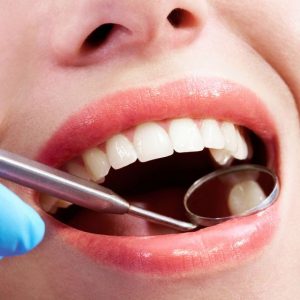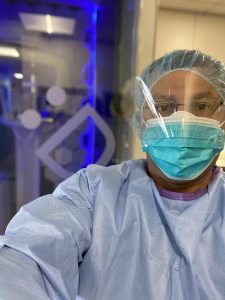Mouth is the gate to body
Since the mouth is a portal for taking in all kinds of things, including the corona-virus, oral care is as essential as it has ever been. Daily brushing and flossing is one of the best ways to help prevent gum disease because it keeps the formation of bacteria-rich plaque to a minimum. Not only does good dental hygiene keep the bacteria in the mouth to a minimum, it can be, a window to your overall health. Oral conditions may impact infection in other parts of the body, especially in people with a compromised immune system. Brushing your teeth regularly will remove bacteria that can be harmful to your immune system. And important to remember #DentistryIsSafe

Also, research suggests that gum disease shares an association with systemic conditions such as diabetes, cardiovascular disease, pregnancy complications, and rheumatoid arthritis.
The American Academy of Periodontology (AAP) recommends brushing twice a day and flossing daily as a part of a daily oral health routine. Money may be tight in the current economy, but preventing gum disease can be less expensive than treating gum disease. Additionally, research has found that people with gum disease can have higher health care costs than people without gum disease! Take the time now to regularly brush and floss to help prevent gum disease and avoid higher health care costs!
It is important to always choose a soft brush head when using either a manual or electric toothbrush, and to replace the toothbrush when the bristles begin to bend (or every two to three months). According to a study in the Journal of Periodontology, all dental flosses are equally effective. This means that it does not matter which type of floss you choose to use.
Contrary to common belief, over-the-counter most mouthwashes don’t contain a high enough concentration of alcohol to kill most bacteria and viruses.

Clear aligners, mouth guards and retainers can collect bacteria and viruses. To clean them, rinse them with cold or room temperature water (never hot as the plastic may melt or deform) and dry them well before storing them in the holding case
Sweets are acidic, which can make your mouth more prone to cavities. Try to limit sugary foods to one time per day and brush your teeth within one hour of consumption.
Foods rich in omega-3 fatty acids―including oily cold-water fish (salmon, tuna, herring, or sardines) and walnuts―have been found to reduce inflammation. The body does not produce these acids naturally, and they can come only from consuming certain foods. Additionally, antioxidant-rich green tea has been shown to reduce inflammation in the body.
We are here to help make sure your oral health, and in return your overall well-being, is at its best. Please make sure that at least twice a year, you have your teeth professionally cleaned and allow us to screen for signs of oral disease.





